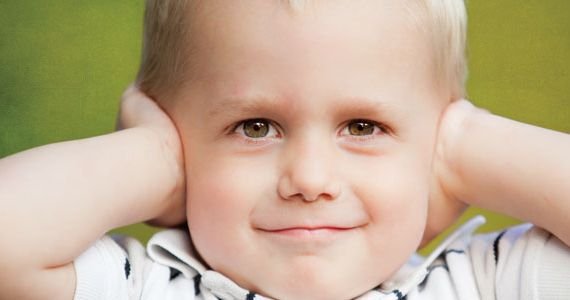Antibiotics as a Solution for Ear Infections
Antibiotics are not always the primary method of treating ear infections in children. Understanding natural treatment options and recognizing when antibiotics are necessary can be beneficial.
Middle ear infection, known as otitis media, is a leading reason for pediatric visits to doctors. Traditionally, antibiotics are the go-to treatment, but they often lead to recurring infections and do not tackle the underlying issue. As a result, more parents are exploring natural remedies.
Causes of Ear Infections in Children
Eustachian Tube Structure
Children are more prone to fluid and mucus accumulation in their ears due to the shorter and more horizontal structure of their Eustachian tubes, the passage connecting the middle ear to the throat. This configuration can hinder fluid drainage, especially when mucus is present. The accumulation of mucus creates an ideal environment for bacterial or viral growth, leading to middle ear inflammation and pain.
Allergies
Chronic ear infections can sometimes arise from food or environmental allergies. Allergies induce inflammation and alter pressure in the ear, which may contribute to mucus buildup and subsequent infections.
Suppressed Immune System
A weakened immune system makes it easier for bacteria or viruses from the nose or throat to enter the middle ear and cause infections.
Signs and Symptoms of an Ear Infection
Children experiencing an ear infection may exhibit the following symptoms:
- Irritability
- Difficulties with feeding or sleeping
- Tugs at the ear
- Reports of ear pain
These signs can also occur alongside upper respiratory infections, such as runny or congested noses, sore throats, coughs, and fever. Consulting a healthcare professional can help assess symptoms and decide on the best treatment approach.
How to Prevent Ear Infections
Parents can take several steps to avoid ear infections in their children before they become serious.
Strengthen the Immune System
Breastfeeding
Exclusive breastfeeding for the first six months, followed by continued breastfeeding until at least a year, is recommended. Human milk contains anti-inflammatory and antimicrobial properties, along with antibodies essential for compensating for an infant’s underdeveloped immune system. Research indicates that introducing formula within the first six months correlated with a higher incidence of acute otitis media compared to infants who are exclusively breastfed.
Vitamin D
Adequate levels of vitamin D are necessary for activating killer T-cells in the immune system, crucial for detecting and combating foreign microbes, potentially preventing serious infections. While little research directly connects vitamin D to ear infections, as most ear infections appear alongside respiratory infections, maintaining sufficient vitamin D levels might help reduce ear infection rates in children.
Probiotics
Adding probiotics to a child’s diet is vital for maintaining a healthy immune system, particularly after antibiotic use, which destroys beneficial bacteria alongside harmful ones. Probiotics help restore healthy gut bacteria, where a significant part of the immune system resides. A recent study showed that probiotic supplementation in infants lowered the incidence of early acute otitis media and reduced antibiotic dependency in their first year.
Decrease Inflammation in the Middle Ear and Canal
Allergies
Food allergies are a significant cause of inflammation and mucus buildup within the ear. Common food allergies include dairy, gluten-containing wheat products, soy, eggs, and certain nuts. Identifying specific food allergens through blood tests can be helpful; however, eliminating common offending food groups, especially dairy, for a period can alleviate recurring ear infections.
Omega-3 Fatty Acids
Omega-3 fatty acids are known to reduce inflammation in the ear canal. Evidence suggests that omega-3s, particularly eicosapentaenoic acid (EPA) and docosahexaenoic acid (DHA), target anti-inflammatory pathways, which may help decrease overall body inflammation. Incorporating fish into your child’s diet or providing a quality fish oil supplement can help maintain appropriate omega-3 levels.
Natural Treatments for Ear Infections
Ear infections are rarely emergencies and typically show improvement within a few days. For children over six months old who are otherwise well and showing mild symptoms, it may be wise to wait two to three days to see if they recover without antibiotics. If an infection persists after three days, antibiotics may be needed. Meanwhile, there are natural methods to help the body combat the infection.
Homeopathy
Research indicates that homeopathy can be an effective treatment for acute otitis media, resulting in faster symptom relief and reduced antibiotic use compared to conventional treatments such as anti-inflammatory and pain-relieving medications. It’s advisable to consult a natural health practitioner to find the homeopathic remedy that best matches your child’s symptom profile.
Herbals
Using botanical medicine involves treating or preventing illness with plant extracts. Various herbal remedies have been researched for otitis media, including Allium sativum, Verbascum thapsus, Valendula flores, Hypericum perforatum, and lavender. When combined with vitamin E and olive oil for use as ear drops, these herbs can alleviate ear pain, one of the primary symptoms of otitis media.
Tip: When Antibiotics are Necessary
Repeated use of antibiotics can render a child more susceptible to different infections, as bacteria can evolve to resist the drug. It is vital to complete the entire prescribed course of antibiotics, even if symptoms improve before completion. Antibiotics can also disrupt the beneficial bacterial flora, compromising the immune system. Therefore, it’s crucial to replenish healthy bacteria through probiotic supplements.
When providing antibiotics and probiotics, ensure they are administered at least three hours apart to prevent the antibiotics from diminishing the effectiveness of the probiotics.






